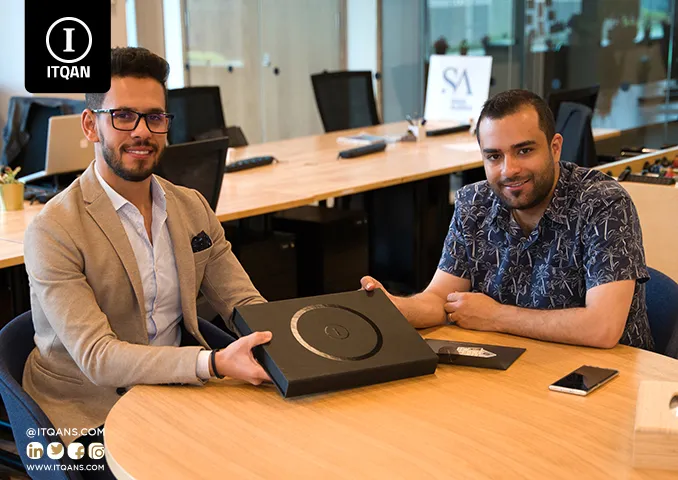Business Setup UAE: A Step-by-Step Guide for Expats in Dubai
Planning a business setup in UAE as an expatriate? Dubai offers a welcoming environment for foreign investors and a straightforward setup process for those looking to launch a company. This guide outlines every essential step from choosing the business activity to obtaining your trade license. Whether you’re new to Dubai or exploring new business ventures, this article provides a solid foundation for a successful start.
Why Choose Dubai for Business Setup?
Dubai’s strategic location, world-class infrastructure, tax benefits, and investor-friendly policies make it one of the best places for entrepreneurs to start a company. Here’s why many expats prefer a business setup in Dubai:
- 100% foreign ownership in Free Zones
- Zero personal and corporate income taxes (in designated sectors)
- Robust legal framework for foreign investors
- Wide access to global markets
- Growing demand across sectors, including tech, tourism, and trade
Key Steps for Business Setup in UAE
Setting up a business in Dubai involves several legal and administrative procedures. Here’s a detailed step-by-step breakdown to guide you:
1. Decide on a Business Activity
Selecting the correct business activity is crucial. Your chosen activity must be aligned with activities permitted under UAE laws. For example, professional services, trading, retail, or tourism. The nature of your business also determines the type of license you’ll need.
2. Choose a Legal Structure
Legal structures define ownership and operation. Common options include:
- Limited Liability Company (LLC)
- Free Zone Company
- Branch of a Foreign Company
- Sole Establishment
Expats often choose Free Zone companies, especially for 100% ownership without needing a local partner.
3. Select the Business Jurisdiction
You can set up your business in:
- Free Zones: Ideal for export-oriented companies, offering tax incentives and custom duty exemptions.
- Mainland: Suitable for businesses targeting the local UAE market.
- Offshore: Typically used for international trade operations.
Free Zones vs Mainland: Which is Right for You?
Free Zones offer full foreign ownership and are perfect for companies that don’t need to operate locally. However, if you want to trade within Dubai or across the UAE, setting up a Mainland company is advisable, although it may require a local service agent or Emirati partner. Consider reading our guide on the best places to set up a business in Dubai for more insights.
4. Register Your Company Name
Propose a unique trade name and get it approved by the Department of Economic Development (DED) or respective Free Zone authorities. Avoid religious or political names and ensure compliance with UAE trade name regulations.
5. Obtain Initial Approval
Secure preliminary approval from the DED or Free Zone authority. This permission confirms that the UAE has no objection to you starting a business under the proposed activity and structure.
6. Draft the Memorandum of Association (MoA)
The MoA outlines the ownership structure, business operations, and responsibilities of each partner. It must be notarized through the UAE Notary Public.
7. Finalize Office Space
Acquire physical office space—mandatory for most licenses. Free Zones typically offer flexible packages, including virtual offices and shared workspaces for startups.
8. Apply for Trade License
Depending on the activity, you’ll need to apply for one of the following trade licenses:
- Commercial License
- Professional License
- Industrial License
- Tourism License
Learn more from our detailed guide on trade licenses in Dubai.
9. Get Approvals from Relevant Authorities
Some activities require approval from external bodies like the Ministry of Health, Municipality, or the Telecommunications Regulatory Authority.
10. Collect Your License and Start Operating
Once all documents are submitted and approved, you will receive your trade license. You can now legally begin business operations in the UAE.
Documents Required for Business Setup in UAE
Document requirements may vary depending on the jurisdiction and business activity. Common documents include:
- Passport copies of all shareholders
- Visa pages and entry stamp (if applicable)
- Proof of address
- Trade name reservation certificate
- Initial approval certificate
- Notarized MoA
Costs Involved in Business Setup
The cost of setting up a business in Dubai depends on various factors like location (Mainland vs Free Zone), license type, number of visas, and office space. Here’s what to expect:
- Trade license fees: AED 10,000 – AED 20,000
- Office space rent: AED 15,000 – AED 50,000
- Registration and legal fees: AED 5,000 – AED 15,000
- Visa fees: AED 3,000 – AED 6,000 per individual
Check out our article on cost breakdown for commercial registration in Dubai for more detailed pricing.
Common Challenges Expats May Face
While Dubai is welcoming to international businesses, expats may face a few challenges:
- Understanding local laws and regulations
- Language barriers when dealing with government departments
- Bureaucratic delays in document approvals
- Tax compliance understanding (especially VAT)
Partnering with a local business consultancy can simplify the process and help avoid costly mistakes.
Tips for a Successful Company Launch
To ensure a smooth business setup experience in UAE, consider these expert tips:
- Research market demand and competitors
- Choose the jurisdiction and license that best fit your business model
- Use trusted local sponsors or service agents if needed
- Stay updated with compliance and renewal deadlines
For further information, consult the official UAE Government Portal.
Final Thoughts: Business Setup UAE Made Simple
For expatriates, business setup in UAE—especially in Dubai—offers incredible opportunities. With the right information and support, setting up your company can be a smooth and rewarding experience. Follow this guide and consult professionals when necessary to ensure full compliance and success.












